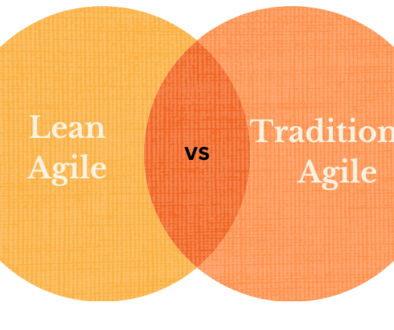Understanding Agile Methodology, Its Benefits, Steps, and Principles
Agile methodology is a flexible approach to project management, emphasizing incremental delivery, team collaboration, continual planning, and continual learning. Its principles focus on adapting to change, delivering working software frequently, and fostering a collaborative environment. By breaking down projects into more miniature incremental stages, benefits of agile methodology include greater flexibility and responsiveness, leading to higher quality products and improved customer satisfaction.
The steps of agile methodology typically include project initiation, planning, iterations, daily stand-up meetings, reviews, and retrospectives. This iterative process ensures that the project stays on track and that any issues are identified and addressed promptly. Professionals often enhance their expertise through agile methodology certification, which validates their skills and knowledge in applying these principles effectively.
The advantages of agile methodology are numerous, including improved project visibility, higher customer satisfaction, better quality control, and the ability to rapidly respond to changes in requirements. By embracing agile methodology principles, teams can foster a culture of continuous improvement and deliver value to stakeholders more effectively.
What is Agile Methodology

Agile methodology is based on 12 principles, including customer satisfaction through early and continuous delivery, welcoming changing requirements even late in development, and enabling face-to-face interactions. The methodology promotes sustainable development, frequent delivery of working software, collaboration between business stakeholders and developers, and the ability to self-organize.
The advantages of agile methodology include improved product quality, customer satisfaction, team productivity, and better project control. Incremental and iterative development reduces the overall risk and allows changes to be implemented more efficiently. Agile methodology fosters transparency and flexibility, allowing for a more adaptive approach to project management.
Benefits of Agile
The Agile methodology is renowned for its numerous benefits and advantages. By emphasizing flexibility and collaboration, it enables teams to respond to changes and consistently deliver high-quality products. This iterative process also promotes transparency and frequent communication among team members, accelerating problem-solving and decision-making.
Furthermore, the benefits of agile methodology include a focus on customer satisfaction, ensuring that the end product meets or exceeds customer expectations. This customer-centric approach also results in higher customer engagement and satisfaction. Additionally, Agile methodology promotes a more efficient use of resources and better risk management, as it identifies and mitigates potential issues early in the development cycle.
Overall, the principles and steps of Agile methodology contribute to improved project visibility, faster time-to-market, and enhanced team morale.
Agile Methodology Steps
Agile methodology is a project management approach that emphasizes flexibility, customer involvement, and iterative development.
The following are the critical steps involved: 
- Define Requirements: Understand the customer’s needs and define precise, detailed requirements for the project.
- Planning: Create a project plan by breaking the requirements into smaller tasks and assigning them to specific iterations or time frames.
- Iterative Development: Develop the project in small, incremental phases, allowing for flexibility and adjustments.
- Continuous Integration: Regularly integrate and test the developed components to ensure smooth functionality.
- Customer Feedback: Get regular feedback from the customer and stakeholders to make necessary adjustments and improvements.
- Review and Retrospect: Regularly review the progress, assess the outcomes, and retrospect for continuous improvement.
Agile methodology certification often focuses on mastering these steps and applying them in real-world scenarios. Agile methodology and its principles provide substantial advantages, including increased adaptability to changes, faster delivery of working products, enhanced stakeholder engagement, and improved quality through continuous feedback and adaptation.
Principles of Agile Methodologies
Agile methodologies are a set of principles for software development that prioritize adaptability, customer collaboration, and the delivery of working software. One of the advantages of agile methodology is its flexibility, as it allows for adjustments even later in the development process. This methodology values customer input and seeks to provide them with the best possible solution. Overall, the principles of agile methodologies promote customer satisfaction, teamwork, and the ability to respond effectively to changes in requirements.
Popular Tags: Agile Methodology Steps, Agile Methodology Phases, Agile Methodology Stages, Agile Methodology Characteristics, Agile Methodology Course, Agile Methodology Pros and Cons, Agile Methodology for Beginners


